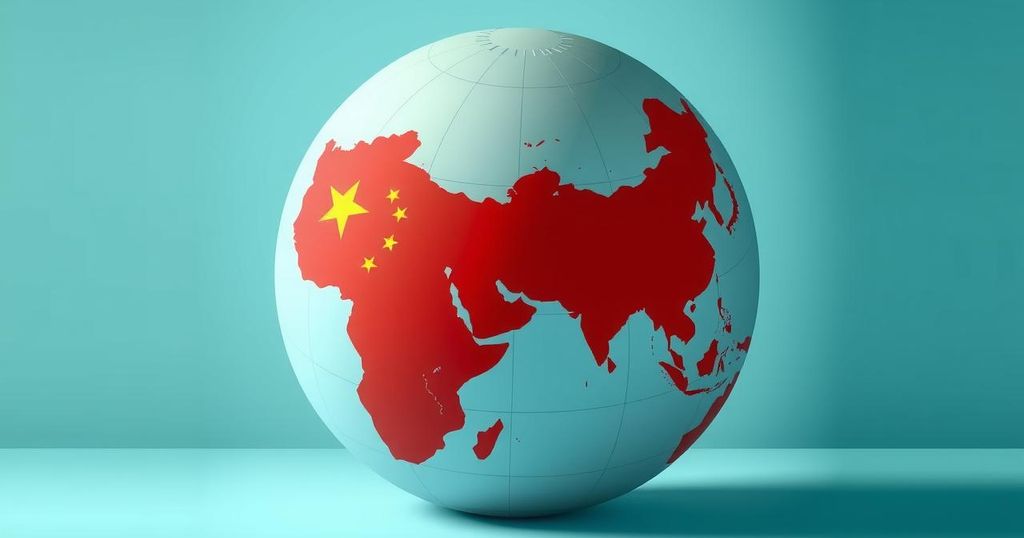China, Iran, and Russia have collectively stressed the need for diplomacy over sanctions in discussions surrounding Iran’s nuclear program, especially following U.S. President Trump’s military suggestions. The parties aim to prevent escalation and explore potential agreements as they contend with impending deadlines from the 2015 nuclear deal. Observers recognize China’s aspiration to enhance its role as a global power, countering U.S. unilateral actions, while navigating complex regional dynamics.
On Friday, China, Iran, and Russia issued a joint statement emphasizing the importance of diplomacy and calling for the cessation of unilateral sanctions on Iran’s nuclear program. This meeting, involving deputy foreign ministers from the three nations, aimed to consolidate their positions as key players in international security matters, particularly in response to statements made by U.S. President Donald Trump regarding military action against Iran. China’s Executive Vice Foreign Minister, Ma Zhaoxu, underlined the necessity to eliminate the root causes behind the current tensions and to abandon threats and sanctions.
The urgency for diplomatic efforts to manage Iran’s nuclear ambitions intensifies, especially as a deadline looms from the 2015 nuclear agreement, which restricts Iran’s nuclear activities. The recent talks point to a collaborative effort between China, Iran, and Russia to avoid escalating tensions and foster a favorable diplomatic atmosphere. Observers note that China’s engagement reflects its aspiration to assert itself as a global leader, challenging the U.S. dominance under Trump’s administration.
China remains invested in the Joint Comprehensive Plan of Action (JCPOA) and has consistently vocalized its opposition to the U.S. sanctions following the withdrawal from the accord. As the October deadline approaches, concerns grow about the potential reinstatement of UN sanctions should no agreement be reached. China’s UN Ambassador Fu Cong expressed hopes for a new deal to sustain the JCPOA.
Trump’s reassertion of the “maximum pressure” campaign against Iran complicates the situation, with his preference for negotiations being met with skepticism from Iranian leadership. Observers suggest the need for a consensus on the deal’s framework, indicating differing objectives between major powers involved.
The ongoing talks illustrate a strategic coalition amongst China, Iran, and Russia, portraying their alignment on vital issues like nuclear non-proliferation. This collaboration may bolster Tehran’s position as it seeks support from its established partners. Concurrently, China’s need to maintain a balance with other regional players, such as Saudi Arabia, underscores its fine diplomatic line in the region.
The Beijing meeting showcases China’s strategic interests in the Middle East, where enhancing ties with Iran and balancing relationships with other states are pivotal. As the crisis surrounding Iran’s nuclear program unfolds, many experts suggest that while China aspires to be a mediator, it faces challenges in navigating the complex geopolitical terrain dominated by U.S. influence.
Despite aspirations for a more central role, it is acknowledged that China’s authority in these negotiations is still developing, raising questions about its effectiveness against deeper-rooted tensions and dynamics. Nevertheless, the cooperation among these nations may signal resilience against unilateral pressures, even as they tread carefully in their approaches to domestic and foreign policy.
In summary, the joint efforts of China, Iran, and Russia signal a concerted move towards diplomatic negotiations regarding Iran’s nuclear program, countering unilateral U.S. actions. As the October deadline for the JCPOA approaches, the implications of these talks resonate strongly within the realm of international relations. Observations note the potential for China to emerge as a more influential player in Middle Eastern diplomacy, though its capacity to mediate effectively remains uncertain amidst complex geopolitical challenges. The situation continues to evolve, necessitating careful monitoring as stakeholders navigate the tensions surrounding nuclear proliferation.
Original Source: www.erienewsnow.com




